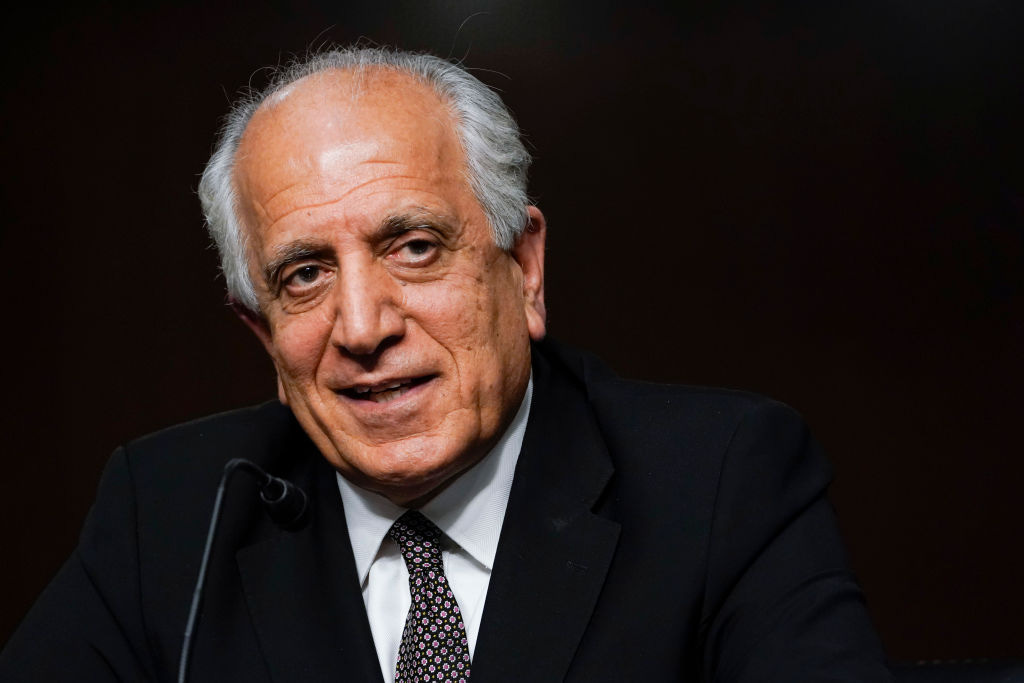Thomas Joscelyn
Zalmay Khalilzad, the former U.S. special representative for Afghanistan reconciliation, is making his rounds in the media. As should be clear to everyone by now, Khalilzad’s servile diplomacy helped pave the way for a swift Taliban victory over the now deposed Afghan government this year. Nonetheless, Khalilzad is trying to defend his record. His arguments are self-serving piffle.
Consider what Khalilzad had to say during an appearance on CBS News’ Face the Nation on October 24.
First, Khalilzad tried to blame exiled Afghan President Ashraf Ghani for failing to reach a “political settlement” with the Taliban. Ghani’s tenure was an unequivocal failure, and few will rise to Ghani’s defense. But it’s nonsensical to claim that Ghani held the keys to peace. The Taliban never had any interest in a political compromise. The group’s leaders repeatedly made it clear that they were waging jihad to resurrect their Islamic Emirate of Afghanistan, the same totalitarian regime that was deposed in late 2001. This was a sacred duty for the jihadists and the principal motivation for their 20-year war.
The Taliban did not hide its ultimate political objective. The Taliban repeatedly referred to itself as the “Islamic Emirate of Afghanistan” in the February 29, 2020, agreement with the U.S. Somewhat clumsily, the State Department inserted language into that same accord saying the U.S. does not recognize the Taliban’s regime. But that did not stop the Taliban from insisting that it be called the “Islamic Emirate of Afghanistan.” Khalilzad struck the deal anyway. And that was a dead giveaway.
The simple fact of the matter is this: There was no “political settlement” to be had. The Taliban was fighting for total victory—exactly as it played out this year. There is no valid counterfactual scenario in which Ghani, or any other Afghan official, could have persuaded the jihadists to settle for anything less than the resurrection of their authoritarian government.
Therefore, Khalilzad’s story rests on an entirely dishonest premise.
Khalilzad claims that the State Department should have “pressed President Ghani harder,” as if the failure to reach a negotiated compromise was Kabul’s fault. How would that have worked? The U.S. forced the Afghans to fight for a draw between February 29, 2020, when Khalilzad submitted to the Taliban in Doha, and August 15, 2021, when the jihadists took over the country. The U.S. kept insisting that there was “no military solution” to the war, dangling the prospect of a fanciful political settlement, even as the Taliban and al-Qaeda fought for victory.
Indeed, Khalilzad’s submissive diplomacy helped the Taliban’s men win the war during that same time-period. Remember: Ghani and his representatives were excluded from Khalilzad’s negotiations with the Taliban. Regardless, Ghani’s government acquiesced to the pressure Khalilzad placed on it by freeing 5,000 Taliban prisoners from Afghan jails. Despite supposed assurances from the Taliban that these fighters would stay out of the war, some of the newly freed jihadists immediately returned to the battlefield and helped their brethren overthrow the Afghan government. The Taliban and al-Qaeda can thank Khalilzad for this boost in manpower.
As Susannah George of the Washington Post has reported, Khalilzad’s bilateral deal with the Taliban hastened the demise of the Afghan military and security forces in other ways as well. Khalilzad’s accord “demoralized” many members of the Afghan forces, signaling that the Taliban was going to return to power. To be sure, there were many other problems, ranging from corruption to poor Afghan leadership. But after Khalilzad’s agreement, many Afghan commanders decided to cut deals with the jihadists, rather than risk losing an all-out fight. We can criticize the Afghans for failing to muster more of a defense, but their defeat took place in the context of Khalilzad’s diplomacy.
Again, Ghani was a feckless leader. But that doesn’t absolve the U.S., which was supposed to be the real power in the war. And Khalilzad himself deserves much of the blame for the way the endgame unfolded.

No comments:
Post a Comment